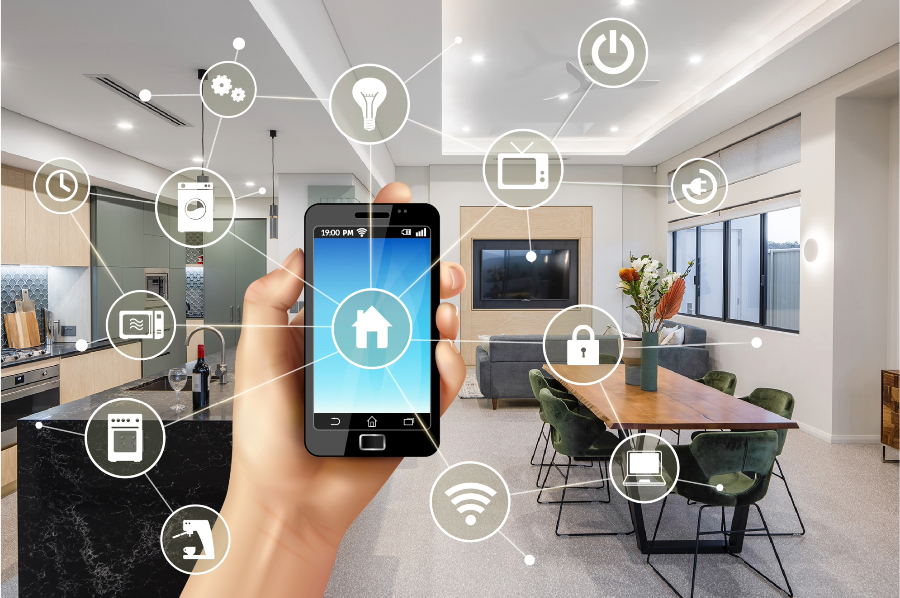The world of smart homes is rapidly evolving, and two of the most significant technologies driving this change are AI and machine learning. As homeowners and businesses look to enhance their living and working environments, understanding these technologies is crucial. The terms AI and machine learning are often used interchangeably, but they have distinct differences, especially in the context of smart homes.

Understanding AI and Machine Learning
Artificial Intelligence (AI) refers to the capability of machines to mimic human intelligence. It encompasses a wide range of technologies, including natural language processing, robotics, and computer vision. AI systems can perform tasks that typically require human intelligence, such as recognizing speech, making decisions, and translating languages.
On the other hand, machine learning is a subset of AI. It involves the use of algorithms and statistical models to enable computers to improve at tasks with experience. Machine learning focuses on building systems that can learn from data and make predictions or decisions without being explicitly programmed to perform the task.
AI in Smart Homes
In smart homes, AI is integrated into various devices to make life more convenient and efficient. For example, AI-powered smart thermostats can learn your temperature preferences and adjust settings accordingly, saving energy and reducing costs. AI is also used in smart security systems, where it can analyze video feeds to detect unusual activity and alert homeowners.
Another significant application of AI in smart homes is voice-activated assistants like Amazon's Alexa and Google Assistant. These AI-driven systems enable homeowners to control various aspects of their homes, such as lighting and appliances, through simple voice commands.
Machine Learning in Smart Homes
Machine learning plays a critical role in enhancing the functionality of smart home devices. For instance, machine learning algorithms can analyze data from smart devices to identify patterns and optimize performance. This capability is particularly beneficial in energy management systems, where machine learning can predict energy usage and suggest ways to reduce consumption.
Moreover, machine learning is pivotal in the development of smart appliances. For example, smart kitchen gadgets can use machine learning to understand cooking habits and provide personalized recipe suggestions. This technology not only enhances user experience but also contributes to more efficient household management.
AI vs Machine Learning: Key Differences
While AI and machine learning are closely related, their applications in smart homes highlight some key differences. AI focuses on creating systems that mimic human intelligence, whereas machine learning is about developing systems that learn and improve from data. In smart homes, AI is more about automation and decision-making, while machine learning is about adaptation and optimization.
For businesses and homeowners, understanding these differences can be crucial when selecting smart home technologies. While AI-driven devices offer convenience and automation, machine learning-powered systems provide adaptability and efficiency.
The Future of AI and Machine Learning in Smart Homes
The future of smart homes will be heavily influenced by advancements in AI and machine learning. As these technologies continue to evolve, we can expect even more sophisticated and integrated systems. For example, AI and machine learning could work together to create a truly intelligent home that anticipates the needs and preferences of its inhabitants.
Additionally, the integration of AI and machine learning with other technologies, such as the Internet of Things (IoT), will further enhance the capabilities of smart homes. This synergy will lead to more comprehensive and personalized home automation solutions, improving the quality of life for homeowners and businesses.
Conclusion
In conclusion, both AI and machine learning play vital roles in shaping the future of smart homes. While they have distinct applications, their combined potential offers exciting possibilities for homeowners and businesses looking to create more efficient and intelligent living spaces. Understanding the differences between these technologies can help you make informed decisions when investing in smart home devices.
For those interested in diving deeper, resources like TechRadar's guide offer comprehensive insights into setting up your smart home.

FAQs
What is the main difference between AI and machine learning?
The main difference is that AI is the broader concept of machines being able to carry out tasks in a way that we would consider 'smart', while machine learning is a subset of AI that focuses on the idea that machines can learn from data.
How do smart homes benefit from AI?
Smart homes benefit from AI through automation and enhanced functionality, such as voice-activated systems and personalized user experiences.
Can machine learning improve energy efficiency in smart homes?
Yes, machine learning can improve energy efficiency by analyzing patterns in energy usage and suggesting ways to optimize consumption, leading to cost savings.

